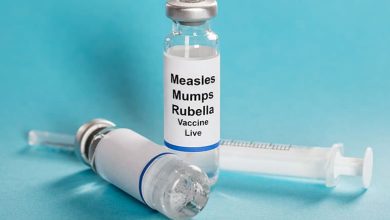
Research shows that social relationships can have a significant impact on your health. If you have more social ties and involvement, you will often have better mental and physical health and live longer.
This doesn’t mean you need to become a social animal if that’s not your personality. Quality relationships are still more important than quantity. A small, close-knit community can be just as beneficial as a much larger social network. Healthy social relationships can include spouses, family, friends, volunteers, coworkers or religious affiliations.
On the other hand, social isolation can lead to some serious health risks. These are a few key findings about how relationships can affect your health.
- Obesity
A 2015 study looked at different age groups and how social engagement affected their physical health over time. They found that both adolescents and adults were less likely to become obese when they spent more time with other people.
In addition, adults who experienced higher stress and trouble in their relationships were more likely to become obese.
- Risk of Death
Many studies have shown that the risk of death is more than twice as high in adults with the fewest social relationships compared to those with the most social ties. This has held true regardless of people’s socioeconomic status, health conditions and other variables that could influence mortality.
Research also suggests that men with low levels of social integration are more vulnerable to disease and death than women, especially in older age groups.
- Blood Pressure
High blood pressure, also known as hypertension, can be caused by many different factors, including diet, disease or genetics. Whatever the cause, uncontrolled hypertension can damage blood vessels throughout your body and contribute to other diseases.
It’s been found that people of all ages, including adolescents, had lower blood pressure when they had higher social connectedness. Also, social isolation increased the risk of hypertension in older adults more than a diagnosis of diabetes, which is a well-known risk factor for hypertension.
- Cardiovascular Disease
Various studies have shown that having low social activity is associated with an increased risk of death from cardiovascular disease.
For instance, a 2001 study looked at adults with coronary artery disease. Those who were socially isolated had a 2.4 times greater risk of cardiac death than their more socially connected peers.
- Cancer Prevention and Recovery
Natural killer cells are part of your immune system that can help your body recognize and fight virus or tumor cells. A few studies have examined the link between social support and these natural killer cells.
In a study of ovarian cancer patients, higher social support was shown to be linked to greater natural killer cell activity in blood. Importantly, natural killer cell activity in tumor-infiltrating lymphocytes was also greater for individuals with high levels of social support.
- Human Immunodeficiency Virus (HIV)
Another important immune function cell is the helper T-cell. These are able to help suppress or regulate immune responses within your body. The HIV virus primarily infects helper T-cells. As more these of cells become infected and die, it can lead to a weakened immune system and the development of acquired immunodeficiency syndrome (AIDS).
Some studies have found an association between social support and helper T-cell counts in those with HIV. For instance, a five-year study found that individuals with high social support showed a 37 percent reduction in helper T-cells over the span of the study, compared to a 64 percent reduction in individuals with low support.
- Inflammatory Response
Inflammation is one of your body’s natural responses to stress and tissue damage. But chronic inflammation can lead to many other conditions, such as arthritis, heart disease and cancer.
Higher social integration has been shown to reduce the risk of inflammation by 25 percent in younger adults and by 14 percent in later adulthood. Social isolation increased the risk of inflammation by the same amount as physical inactivity.
- Depression
Social isolation has been shown to increase depression in both adolescents and adults. Depression can contribute to many other serious problems like insomnia, weight loss or gain, lack of concentration, feelings of worthlessness and thoughts of death potentially leading to suicide.
Unfortunately, the risks connected to social isolation are not isolated to a few people. Duke University determined that 25 percent of Americans have no meaningful social support at all. And over 50 percent of Americans report having no close confidants or friends outside their immediate family.







